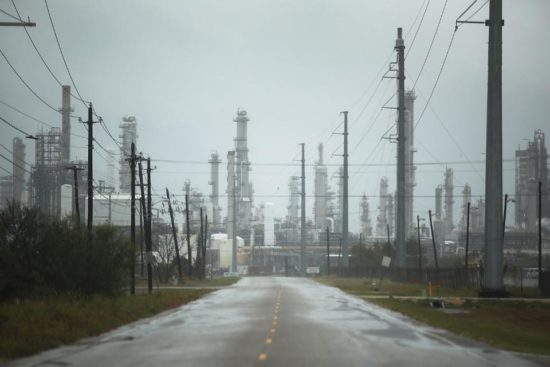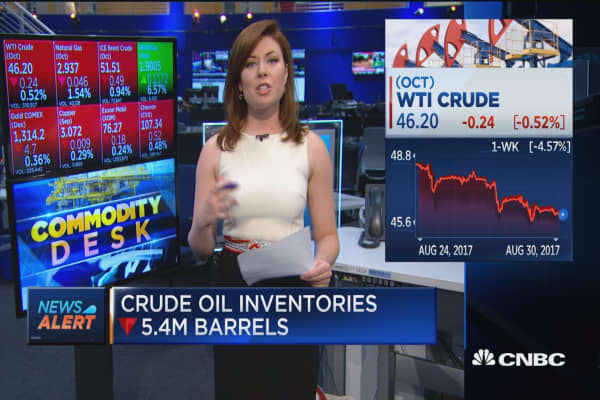The whole world is feeling the pinch of the shutdown of the Texas energy industry, reports cnbc.com.
The logistics that move oil and fuel are snarled—or just not operating at all—after Harvey’s catastrophic flooding caused widespread outages of energy operations along the Gulf Coast. The shutdowns have the potential to ripple across the global supply chain and impact prices. As of Wednesday, well over 20 percent of U.S. refining capacity was shut down.
Harvey shows just how important the U.S. has become to the world’s energy supply.
In the nine years since the last major hurricane hit Texas, the U.S. has nearly doubled the amount of crude it drills to the point where it now challenges Russia and Saudi Arabia in the top tier of oil producers. It has also turned from being an importer of gasoline and diesel to being a net exporter on a major scale, sending cargoes to far-flung places like Mexico, Brazil, Belgium and China.
Texas itself was producing just about 1 million barrels of crude oil from its wells each day when it was hit by Hurricane Ike in 2008. As Harvey arrived last weekend, its oil field production topped 3.4 million barrels a day — more than most OPEC members including Angola, Kuwait, Nigeria, Libya and the United Arab Emirates.
The U.S. has also added 2 million barrels a day of refining capacity in recent years, much of it in facilities along the Gulf coast. The U.S. refines 17.5 million barrels a day of crude, turning it into gasoline, diesel and jet fuel.
“The whole logistics of the global industry has changed dramatically over the last decade,” said Daniel Yergin, vice chairman of IHS Markit. “There are refineries in China that depend on U.S. crude oil. U.S. refined products go to Latin America. The U.S. exports distillates to Europe.”
In the week before Harvey hit, the U.S. exported 936,000 barrels a day of crude oil and 693,000 barrels of gasoline a day. The U.S. consumes over 9 million barrels of gasoline a day. Now, the Houston Shipping Channel is closed, tankers are not moving, and oil that is being drilled is not able to move into refineries.
“Harvey’s impact is in the process of going global, as buyers of U.S. crude and refined product now have to scramble to cover. Remember the U.S. was one source of diversification away from OPEC for Asian buyers,” said John Kilduff, energy analyst with Again Capital. The Gulf Coast is home to about 46 percent of U.S. refining capacity.
To read complete article click here.
Source: cnbc.com



